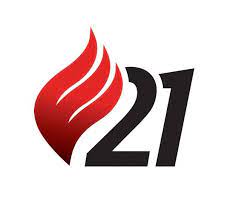Event Type
Papers Read
Start Date
14-5-2018 4:45 PM
End Date
5-2018 5:30 PM
Description
Integrating Christianity in the Traditional Religious Milieu: The South African Experience
Synopsis
After almost four centuries of Christian missionary contact, traditional religions and Islam continue to compete vigorously with Christianity in Africa. Is such a context, the cross-fertilisation of religious ideas and practices becomes inevitable. The history of Christianity in Africa and its interface with traditional religion is a fascinating one that has engaged scholarly attention from various perspectives. So far, the main school of thought on this Christian-traditional religion interface has labelled the traditional context as preparation for the gospel. From 1652, which marks the first missionary contact with South Africa, Christianity has since settled in, and its interaction with African traditional religion has engendered a pneumatically conscious form of Christianity, which also depicts elements of traditional religious practices. Whilst an appreciative perspective views this development as relevant contextualisation, critics regard it as syncretism. This article explores the trajectory of over four hundred years’ relationship between Christianity and traditional religion in the South African context. I appreciate the traditional religious milieu as one of extreme spiritual consciousness, which, approximates the first century Judean context that engendered the gospel narratives. Traditional society in Africa is sensitive to both benevolent and malevolent spiritual forces which compare favourably to angels and demons, respectively. The role of the traditional priest in invoking the favour of benevolent spirits to bless the community or individuals through seances, trances, visions, and prophetic encounters are well documented. Coupled with their capacity, or so it is believed, to control and regulate the activities of malevolent forces who bring tragedy to the community through exorcisms and pacification rituals. The response of the early Roman Catholic and Protestant missionaries to such spiritual encounters was one of total disengagement and rejection. However, with the emergence of Pentecostalism in the early 20th century, a more fertile and symbiotic relationship appears to emerge between the two religious traditions. The outcome is the establishment of prophetic and deliverance ministries who practice exorcisms, healings and foretell the future. Some of their rituals, especially in the category referred to as African Independent Churches (AICs) have generated debate regarding morality and abuse. This paper reflects on the impact of this Christian and traditional religion interaction, to identify possible areas of constructive dialogue and moral progress.
Dela Quampah was Dean of Studies at Pentecost Theological Seminary, Ghana, from 2012 to 2015. Prior to that he taught Christian Ethics and the Pastoral Epistles at Pentecost University College, Ghana, from 2002 to 2011. He is currently a missionary of the Church of Pentecost to South Africa. He studied for his Ph D in the Study of Religions at the University of Ghana, with Ministerial Ethics as his research focus. His book, Good pastors, bad pastors, is published by WIPF & Stock.
Study 7: “Integrating Christianity in the Traditional Religious Milieu: The South African Experience"
Integrating Christianity in the Traditional Religious Milieu: The South African Experience
Synopsis
After almost four centuries of Christian missionary contact, traditional religions and Islam continue to compete vigorously with Christianity in Africa. Is such a context, the cross-fertilisation of religious ideas and practices becomes inevitable. The history of Christianity in Africa and its interface with traditional religion is a fascinating one that has engaged scholarly attention from various perspectives. So far, the main school of thought on this Christian-traditional religion interface has labelled the traditional context as preparation for the gospel. From 1652, which marks the first missionary contact with South Africa, Christianity has since settled in, and its interaction with African traditional religion has engendered a pneumatically conscious form of Christianity, which also depicts elements of traditional religious practices. Whilst an appreciative perspective views this development as relevant contextualisation, critics regard it as syncretism. This article explores the trajectory of over four hundred years’ relationship between Christianity and traditional religion in the South African context. I appreciate the traditional religious milieu as one of extreme spiritual consciousness, which, approximates the first century Judean context that engendered the gospel narratives. Traditional society in Africa is sensitive to both benevolent and malevolent spiritual forces which compare favourably to angels and demons, respectively. The role of the traditional priest in invoking the favour of benevolent spirits to bless the community or individuals through seances, trances, visions, and prophetic encounters are well documented. Coupled with their capacity, or so it is believed, to control and regulate the activities of malevolent forces who bring tragedy to the community through exorcisms and pacification rituals. The response of the early Roman Catholic and Protestant missionaries to such spiritual encounters was one of total disengagement and rejection. However, with the emergence of Pentecostalism in the early 20th century, a more fertile and symbiotic relationship appears to emerge between the two religious traditions. The outcome is the establishment of prophetic and deliverance ministries who practice exorcisms, healings and foretell the future. Some of their rituals, especially in the category referred to as African Independent Churches (AICs) have generated debate regarding morality and abuse. This paper reflects on the impact of this Christian and traditional religion interaction, to identify possible areas of constructive dialogue and moral progress.
Dela Quampah was Dean of Studies at Pentecost Theological Seminary, Ghana, from 2012 to 2015. Prior to that he taught Christian Ethics and the Pastoral Epistles at Pentecost University College, Ghana, from 2002 to 2011. He is currently a missionary of the Church of Pentecost to South Africa. He studied for his Ph D in the Study of Religions at the University of Ghana, with Ministerial Ethics as his research focus. His book, Good pastors, bad pastors, is published by WIPF & Stock.





